Moral Codes: Heroes, Villains, and Agents of SHIELD
Traditionally, the hero is the character in a storyline that is followed most closely by the audience, and the character that has to both a) make the hardest decisions, and b) deal with the positive and negative consequences of these decisions. The villain, then, is the character challenging the hero; through their conflict, the strengths and weaknesses of the hero are revealed.
One of the main differences between the hero and the villain, aside from the amount of time spent focusing on them in the storyline, is the way they go about achieving their goals. Where the villain can take an “I don’t care about anyone but myself and my goals” kind of attitude, the hero must follow a stricter moral code; a moral code that both makes their journey and decisions more difficult, and more interesting to follow. It is because of this moral code that heroes find it impossible to kill in cold blood, sacrifice innocent lives in pursuit of their own personal success, and make decisions that negatively affect those around them, and those they have never before met; it is because of this moral code that we can distinguish true heroes from true villains.
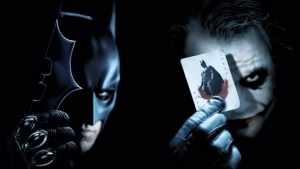
Warning: This article contains spoilers from recent episodes of Agents of SHIELD. Read at your own peril.
Let us now have a look at Agents of SHIELD, and two of the most complicated and analysis-worthy characters in the entire series: Grant Ward and Phil Coulson. Agents of SHIELD has become a reasonably successful TV series, having just been renewed for a fourth season.
Originally based off of the hype of Phil Coulson’s return from the dead after events in the first Avengers movie, the show has evolved into so much more; recently, inhumans and a battle with one of the oldest Hydra villains the world has ever encountered. Yet not only does it have a well-written (though occasionally predictable) storyline, the characters are extremely well-developed and thought through. For example:
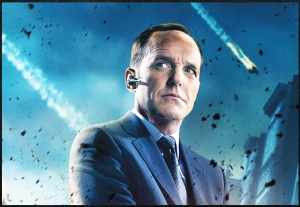
Agent Phil Coulson emerged in the show as the recently revived SHIELD agent, leading his new team to consider and consult cases that had not yet been classified by the upper levels in SHIELD. During this time, he and his team ended up investigating his revival, and found the TAHITI project; after considering the amount of evil it could do, Coulson destroyed it so it could never be used again, pushed by heroic resolve to ensure no one had to go through that kind of pain again.
After a member of his team betrayed him, and SHIELD was dissolved following events in the Avengers movies, he continued to believe in the very cause SHIELD was created for- leading him to go after the teammate and their evil Hydra compatriots in order to secure a safe world for the innocent beings living in it (quite clearly the honorable road that a hero would take). Nick Fury then appointed him to be the new director of SHIELD, and ordered him to rebuild it; Coulson used his newly built team to fight the rogue inhumans that were threatening the world as we know it- unlike Hydra that attempted to control or kill them, Coulson provided services to allow the inhumans to live a safe and comfortable life.
Character Analysis: Hero

Grant Douglas Ward had a troubled childhood; ending with him burning his house down and killing his parents in the process. He was then taken in by John Garrett, who became his surrogate father, and whom he trusted with his life; Garrett trained him as a Hydra spy, and sent him to be a part of Coulson’s SHIELD team, disguised as a level 7 SHIELD operative to infiltrate SHIELD and further serve Hydra’s main purpose: world domination.
Ward became attached to the team, but ended up breaking off and revealing his loyalties to Garrett during the Hydra uprising, during which he killed one of the head SHIELD members. After Garrett’s death and Ward’s own imprisonment at Coulson’s hand, he escaped, and tried to break off from Hydra by attempting to help a woman get revenge on SHIELD for the pain they had caused her. Ward fell in love with this woman, and was devastated when a faulty disguise meant she died at his hand; this lead him to rejoin Hydra, now having nothing left, and attempt to rebuild it. He worked with another Hydra head in an attempt to return the inhuman Hive to Earth in order to serve Hydra and to get revenge on Coulson for his part in the death of his love. He also took this time to kill Coulson’s love as revenge for Coulson’s actions against his own love. Ward died at Coulson’s hand while on the planet Maveth.
Character Analysis: Villain
Those are some super complex characters, but that complexity wouldn’t have been for any good without a good storyline to go with it. Ward’s death happens after Coulson captures him on Maveth, and, during a fight with Hive, Ward attempts to escape. With his hands tied and with a bullet in the shoulder, complements of Coulson, he was helpless, yet tried to make the escape regardless.
Coulson pinned Ward to the ground, and Ward was unable to resist as Coulson used his metal hand to crush his chest, killing him instantly. As Coulson did this, visions of the woman he had fallen in love with, the woman Ward had killed, filled his head and guided his hand to the killing blow. Now, as Coulson is painted as the hero of the storyline, a very important question emerges from this scene: can Coulson still be considered a hero after he killed Ward?
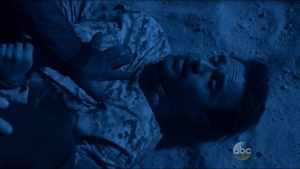
The answer to that question lies in the motivation behind the killing. When you consider it, the moral line that separates heroes from villains, classically of course, is that villains are willing to kill anyone at any time, and heroes kill only when there is no other option. Consider a classic example like Star Wars: Emperor Palpatine is willing to wipe out the entire Jedi race, along with planets of innocent people like Alderaan in order to achieve his goals, yet Obi Wan Kenobi only attempts to kill Anakin Skywalker when he sees that there really is no other way out of the situation; it was Anakin’s life, or his own. It’s right there that the line is drawn- if the killing is done in self defense, then it can be considered to be moral; if the killing is vengeful, or a heat-of-the-moment killing, it becomes immoral, and lies in the realm of the villain. In this case then, Obi-Wan, though he did (technically) kill Anakin Skywalker, he did so for the right reasons- to protect the world from the destruction and pain he would without a doubt have rained upon it.
Coulson killed Ward for the wrong reason: revenge. He wanted to kill Ward, and to give him the same end that Rosalind, and many others had met at his hand. He did not kill Ward to protect others from him. The thing is, at that exact moment, Coulson was in no danger from Ward; Ward was unarmed, injured, and unable to defend himself in any manner. There was absolutely nothing Ward could have done to harm Coulson in any way, therefore, because Coulson had a clear opportunity to apprehend Ward instead of killing him, his action was one that a hero couldn’t morally take. This is a clear violation of the classic moral rules that heroes follow; therefore, Coulson should not be considered a hero, because his actions were the exact opposite to the ones a real hero would take.
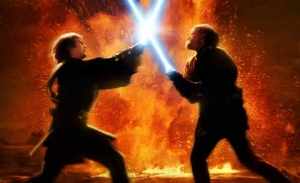
Consider the things that heroes do. Heroes save people. Heroes help people; usually innocent people, but occasionally they help out a con or two. Coulson, in his mad rush to make Ward pay for what he had done, kidnapped Ward’s younger brother, an innocent civilian, and threatened to torture him if Ward didn’t give up Fitz and Simmons, whom Hydra had taken for information.
Coulson purposefully terrified an innocent man out of his mind, pulling him back into a life he had tried to escape from, not for the greater good, but to provide a cure to his deep-seeded revenge, and his need to see Ward in pain. Is this the action of a hero? Yes, Ward had kidnapped in the past, but again, looping back to the classic hero-villain dichotomy, that is something that heroes should not do; that is something that is against their moral codes. Coulson, however, seems to have little qualms about it. Does that make him the classic hero he was made out to be, or something else entirely?
Now, there is some debate around this idea, mostly due to the fact that Ward may have proved a danger to other civilians after the event had he escaped, and that he had killed innocent people in the past. Yet that an important part of the character development in heroes comes from the fact that they can’t bring themselves to kill every person that poses a threat to others, or that could potentially prove to be a threat to others. Think about prisons; the vast majority of people there have caused people harm, and are more than likely able to or even going to cause more people more pain once they are released. Does that mean that prison guards should come in and kill everyone inhabiting prison cells before they have the chance to hurt anyone or do any harm, without any evidence that they were actually going to? Keep in mind that this is a fictional debate- I’m not saying that every person that has ever done wrong is going to come around and make flower crowns and advocate peace, I’m saying that in a fictional atmosphere, when considering the moral line between hero and villain, heroes simply cannot kill villains unless there is no other viable option.
It’s this moral dilemma, this inability for heroes to take the drastic action, which makes these shows interesting for us, the viewers. Would you want to watch a show where the main character solves his/her problems by killing everyone in their way, and had absolutely no morals and didn’t care about anyone or anything but their goals? It would be over in less than a season! Instead, we are given characters with moral boundaries, where heroes must follow moral boundaries in order to still be considered to be a part of the ‘good side’. Would we consider Barry to be a hero if he had murdered the Reverse Flash in cold-blood the very first time he had gotten anywhere near him, without even giving him a chance to explain his actions? Certainly not! Why, then, should we consider Coulson to be a hero after he cold-bloodedly murdered defenseless Ward? I certainly hope Marvel carefully considered its next move; now that Coulson has made a move he will never be able to recover from, Marvel will have to change the way Coulson’s team sees and trusts him, and even the way that Coulson sees and trusts himself; no longer being a hero means that Coulson’s time on the heroic side may not be as long lasting as everyone thought.
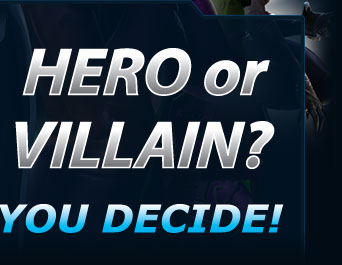
What do you think? Leave a comment.










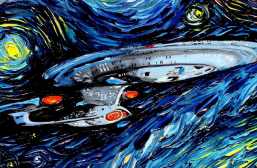
My main issue with MAoS was that none of the characters sounded like they were part of some elite spy unit or that their job was even remotely dangerous. It just seemed like the were all on some jolly to find people with special abilities.
I think I was just expecting it to be more like Spooks or even the tongue-in-cheek Strike Back.
I see where you’re coming from. I think it just took a little while for their positions to show, as well as the danger to show itself. Maybe showing a little bit more of their personal lives outside of the job would have helped that along
I’ve been watching Agents of Shield since it started S1 and I love it.
It’s one of my favorites, that’s for sure 🙂
I like the goofy one-liners.
The goofy one-liners are my favourite!
I wish the MCU would acknowledge Agents of Shield more. I was really excited when the show was announced because, even without knowing much about the comics or SHIELD, there was a lot that could be done just within the world set up by the MCU movies. To be honest, I haven’t watched AoS since the mid-season finale of season 3, but I hear it doesn’t get more included into the MCU.
I totally agree! I think it would be really good to have the AoS team show up in one of the Avengers movies- especially since they all think Coulson is dead. The Avengers’ reactions to the fact that he is alive would totally be worth exploring!
I saw a fan theory that Coulson should be the one to get Tony and Steve back on the same side, which would be a great integration of the Marvels’ TV universe with their film universe, as well as possibly the only person who could reunite the broken Avengers for Infinity War.
Oh man! That would be perfect! I agree- he seems to be about the only man for the job! I so hope that’s the direction they take with it!
I always find that Agents Of Shield is one of the shows I’m most looking forward to (along with Walking Dead and Person Of Interest), yet it does disappoint a lot. It has the potential to be abso-bloody-amazing, and it sometimes is, but mostly isn’t.
There are times, yes, where it can disappoint, but at the same time, I think it really does reach that amazing point more often than not
Sometimes yes, it can disappoint, but at the same time, I think that the writers do really well with the materials and ideas they’re given to work with. I find it really interesting to analyze and watch, which is one of the reasons I love it so much!
Me and the kids sitting down to watch it shortly on stream…
Yay! Have fun! I hope you enjoy it!
This is as visually interesting as a brieze block, though, which in modern tv is pretty inexscusable.
The main problem for me as a casual viewer is that I don’t get the references to past continuity. They give fans enough of a jolt during the dull bits to keep them happy, but do nothing for the rest of us.
That’s true. After missing a couple of episodes, or waiting a couple of months between episodes, I have to go back too and recount what’s happened. Maybe that’s all part of their plan to make sure that everyone stays completely caught up 😉
The hero-villain divide is always interesting to dissect as new characters and stories come along.
I agree! It’s definitely one of my favorite to explore, in any scenario!
Excellent article. I love Agents of Shield. It was one of the first shows I really felt like I had to watch in a long time. Hero/Villain is great to portray conflict. I wonder what will happen in the next season and can’t wait.
Thank you so much! I felt the same way about it- it’s just so interesting and it’s really good at making you want to watch more 🙂 I can’t wait for the next season as well!
The phrase “Brand Synergy” makes me do a little sick in my mouth every time I hear it. Please refrain!
It gets much darker, and much better.
Amazing article. I’ve always loved Hero vs Villain debates. But I think we should come out from the notion that ‘heroes are always good’. All men have faults. To think the heroes as humans we should probably accept them as faulty heroes who try to change the world but may diverge from the ideal path. But then again the guilt and realization may bring them closer to us.
I actually really enjoyed watching this show. Sure there were some off notes, but overall I found it fun.
The first series was okay, at times a lot of fun, and no where near as bad as claimed even in the dodgy moments. And it got better as the series progressed
I definitely agree with this. Season one started fairly weakly but finished very strong. It went from having a let’s-deal-with-the-baddie-of-the-week feel to having a genuine overarching SHIELD-vs-HYDRA one that has real punch.
Lilya, you make an enticing argument. I am very excited to see what will happen with Ward’s character, and Brett Dalton’s role in the show.
Perhaps Coulson could shift into the realm of anti-hero rather than full on villain. The moral code, or lack thereof, of anti-heroes is always so intriguing to try to figure out and watch unfold.
I am so sick of this show acting immoral and justifying it with ‘We’re the good guys’ saying that doesn’t make it true. New flash show SHEILD has never been the good guys they operate in a morally grey area to maintain order. This is true in the comics, the cartoons, the movies, and certainly this show! Yet they continually act like they are on the moral high ground like the sins they commit don’t matter cause it’s for the greater good. It ticks me off! I’ve been waiting three seasons for good guy to just come out and call SHEILD out on their self righteous hypocrisy! And hopefully the Spirit of Vengence will do that in season four!
To compensate for Coulson’s grey area they’re trying to direct the show towards Daisy. I’m not looking forward to the next season (four) if it focuses on her more than the team– since it’s so good because of the dynamic between them all– but I guess the super hero genre demands its pure protagonist.